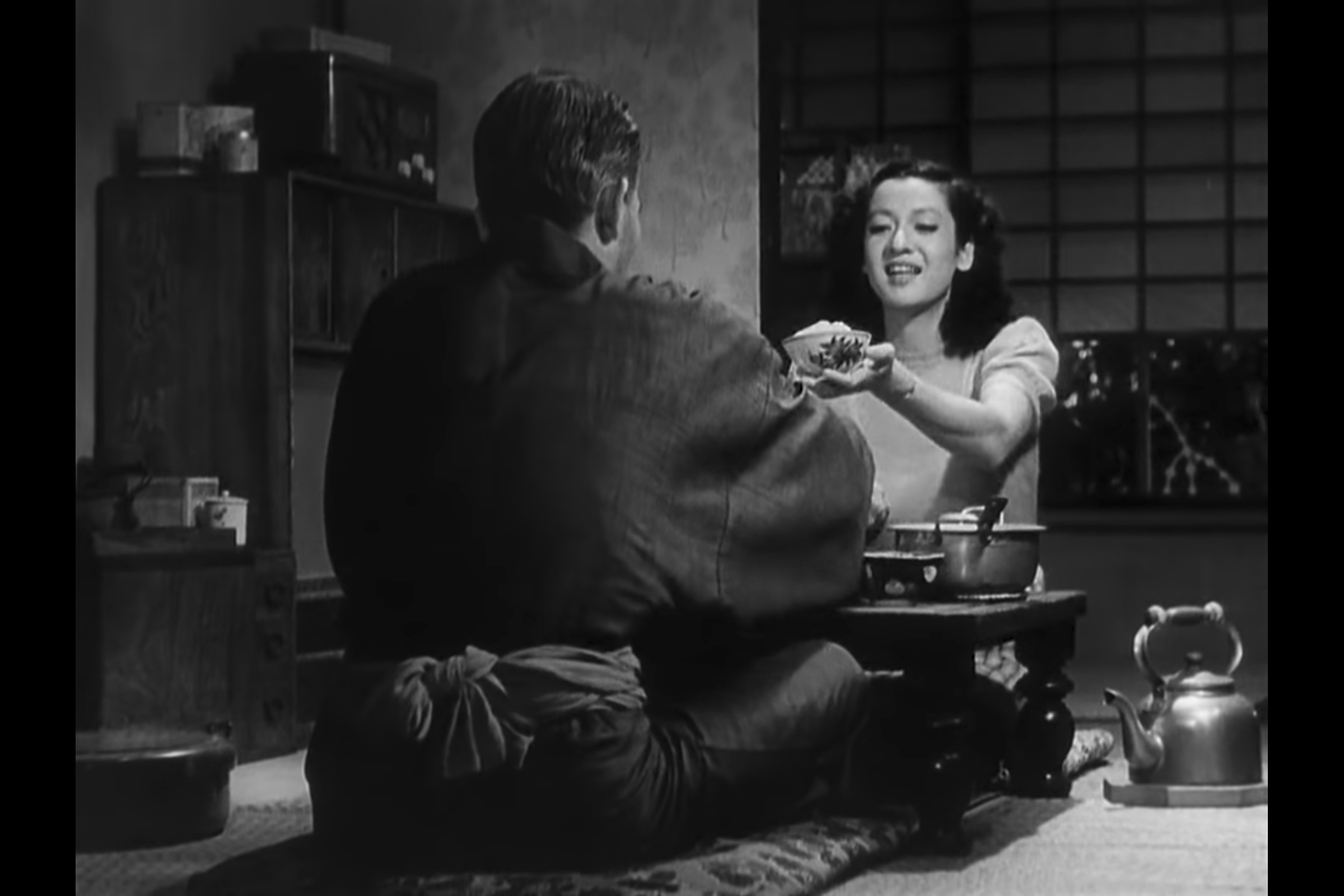Mourning the Loss of the Ordinary. A Cavellian Reading of Ozu’s "Late Spring"
DOI:
https://doi.org/10.58519/aesthinv.v3i2.11937Keywords:
Ozu, Cavell, SkepticismAbstract
This paper offers a reading of Yasujiro Ozu’s Late Spring (Banshun, 1949) focusing on its examination of the ordinary: its conditions, its structure, its dynamics, and its fragility. This reading is articulated by juxtaposing some of Stanley Cavell’s main insights concerning modern skepticism and its threat to the ordinary and their corresponding expressions in a series of representative sequences from Ozu’s film. In both cases the notion of mourning plays a central role. I close by establishing one additional parallel between Cavell’s and Late Spring’s interpretations of the ordinary, focusing on the absence of a wedding ceremony at the end of Ozu’s film.
Downloads
References
Burch, Noël. 1979. To the Distant Observer: Form and Meaning in Japanese Cinema. London: Scolar.
Cavell, Stanley. 1971. The World Viewed: Reflections on the Ontology of Film. New York: The Viking Press.
--- 1976. Must We Mean What We Say? Cambridge: Cambridge University Press.
--- 1979. The Claim of Reason: Wittgenstein, Skepticism, Morality and Tragedy. Oxford: Oxford University Press.
--- 1981. Pursuits of Happiness: The Hollywood Comedy of Remarriage. Cambridge, MA: Harvard University Press.
--- 1984. Themes Out of School: Effects and Causes. San Francisco: North Point Press.
--- 1987. Disowning Knowledge: In Six Plays of Shakespeare. Cambridge: Cambridge University Press.
--- 1988. In Quest of the Ordinary: Lines of Scepticism and Romanticism. Chicago: University of Chicago Press.
--- 1996. Contesting Tears: The Hollywood Melodrama of the Unknown Woman. Chicago: University of Chicago Press.
--- 2004. Cities of Words: Pedagogical Letters on a Register of the Moral Life. Cambridge, MA & London: Harvard University Press.
Clewell, Tammy. 2004. “Cavell and the endless mourning of skepticism.” In Angelaki: Journal of the Theoretical Humanities 9 (3): 75–87.
Freud, Sigmund. 1917. “Mourning and melancholia.” In Standard edition of The Complete Psychological Works of Sigmund Freud (ed. Vol. 14), 237–259. London: Hogarth Press.
Heidegger, Martin. 1997. The Question Concerning Technology, and Other Essays. New York: Harper & Row.
Klevan, Andrew. 2000. “The Resonance of Repetition: Ozu Yasujiro’s Late Spring.” In Disclosure of the Everyday: Undramatic Achievement in Narrative Film, 135–169. Trowbridge: Flicks Books.
Lear, Jonathan. 2017. “Mourning and moral psychology.” In Wisdom won from illness, 191–205. Cambridge MA: Harvard University Press.
--- 2018. “The difficulty of reality and a revolt against mourning.” European Journal of Philosophy; 26:1197–1208.
Parks, Tyler. 2016. “Change Horizon, and Event in Ozu’s Late Spring (1949).” Film-Philosophy 20:283–302.
Rothman, William. 2006. “Notes on Ozu’s Cinematic Style.” Film International 22:33–42.
Rugo, Daniele. 2016. Philosophy and the Patience of Film in Cavell and Nancy. London: Palgrave Macmillan.
Techio, Jônadas. 2016. “Taking skepticism seriously: Stroud and Cavell.” Sképsis 7:100–125.
--- 2020. “The threat of privacy in Wittgenstein’s Investigations: Kripke vs. Cavell.” Wittgenstein-Studien 11:79–104.
Wittgenstein, Ludwig. 1984. Culture and Value. Chicago: University of Chicago Press.

Downloads
Published
Issue
Section
License

This work is licensed under a Creative Commons Attribution 4.0 International License.
Authors who publish with this journal agree to the following terms:
Authors retain copyright and grant the journal right of first publication with the work simultaneously licensed under a Creative Commons Attribution License that allows others to share the work with an acknowledgement of the work's authorship and initial publication in this journal. Note: up to volume 4 issue 1, an incorrect copyright line appears in the PDFs of the articles.
Authors are able to enter into separate, additional contractual arrangements for the non-exclusive distribution of the journal's published version of the work (e.g., post it to an institutional repository or publish it in a book), with an acknowledgement of its initial publication in this journal.
Authors are permitted and encouraged to post their work online (e.g., in institutional repositories or on their website) prior to and during the submission process, as it can lead to productive exchanges, as well as earlier and greater citation of published work (See The Effect of Open Access).





